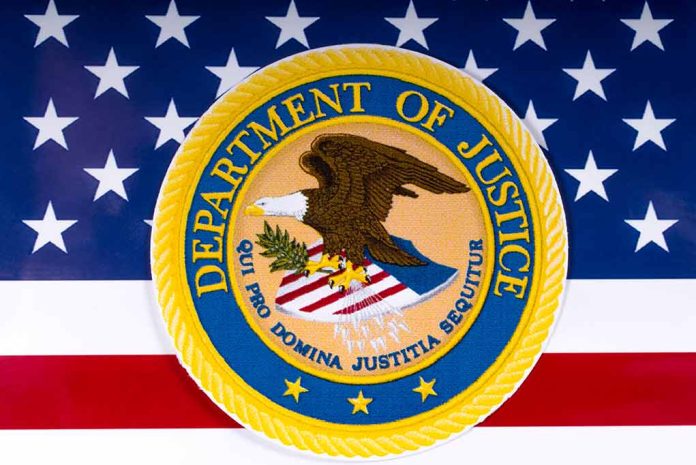
The Department of Justice challenges the return of Kilmar Abrego-Garcia, deported to El Salvador amid MS-13 allegations, raising issues of judicial authority and administrative errors.
Key Takeaways
- U.S. District Judge Paula Xinis ordered Kilmar Abrego-Garcia’s return by April 7, deeming the deportation unconstitutional.
- The DOJ disputes Judge Xinis’s authority to mandate his return, emphasizing sovereignty and jurisdictional issues.
- Abrego-Garcia’s deportation was linked to unverified MS-13 allegations, which his legal team strongly disputes.
- The White House acknowledged the deportation as an administrative error.
- DOJ attorney Erez Reuveni faced administrative leave for conceding the lack of justification for the deportation.
The Judicial Standoff Over Deportation
The controversy intensifies as the DOJ opposes a U.S. District Judge’s mandate to return Kilmar Abrego-Garcia from El Salvador after his deportation due to alleged MS-13 links. Despite a 2019 legal protection ruling, the level of scrutiny underlines deep-seated concerns over judicial jurisdiction and administrative oversight in deportation protocols.
Critics argue that this case exemplifies broader issues with immigration policies, as Abrego-Garcia was deported without lawful authority. Judge Paula Xinis described the deportation as “an illegal act” from the outset, citing violations of the Immigration and Nationality Act. This raises questions about due process in immigration enforcement.
Trump Administration Sends Brutally Honest Response Saying Judge Can't Undo a Perfectly Good Deportation | streiff, RedState
The Justice Department filed an application for an emergency stay of an order requiring an adjudicated MS-13 member be brought back the United States that… pic.twitter.com/6rQBym4WrB
— Owen Gregorian (@OwenGregorian) April 6, 2025
Legal and Family Backlash
Abrego-Garcia’s legal team disputes the MS-13 affiliations, claiming no substantive evidence links him to gang activities. His wife, Jennifer Vasquez, publicly attested to his character, calling the incident a family tragedy. Maryland officials criticized the administration for disregarding due process, pressing for remedial action.
The DOJ continues to contest the judge’s directive, planning to appeal on grounds of jurisdictional overreach. The legal dynamics remain complex as Abrego-Garcia awaits the resolution of his case from a Salvadoran prison. Meanwhile, the public probes further into the veracity of MS-13 allegations against deported individuals.
A Cautionary Tale in Immigration Policy
Abrego-Garcia’s case accentuates the repercussions of expedited deportations under administrative oversight. The White House’s labeling of him as a “public threat” contrasts starkly with testimonies from immigrant advocates, who argue many deportees are unfairly targeted based on superficial assessments rather than substantive criminal records.
“At my direction, every Department of Justice attorney is required to zealously advocate on behalf of the United States. Any attorney who fails to abide by this direction will face consequences,” directed Attorney General Pam Bondi.
The DOJ must navigate the implications of this dispute for its broader immigration policy. The legal provisions and executive authority governing deportations are under scrutiny as this case progresses through appellate courts. The eventual outcome could redefine the boundary between immigration enforcement and judicial oversight in the United States.
Sources:
- Judge Rebukes Trump Admin’s Request—’Shocks the Conscience’ – Newsweek
- Judge orders the Trump administration to return man who was mistakenly deported : NPR
- Judge Again Orders Trump Admin to Return Man Deported to El Salvador | The Epoch Times







